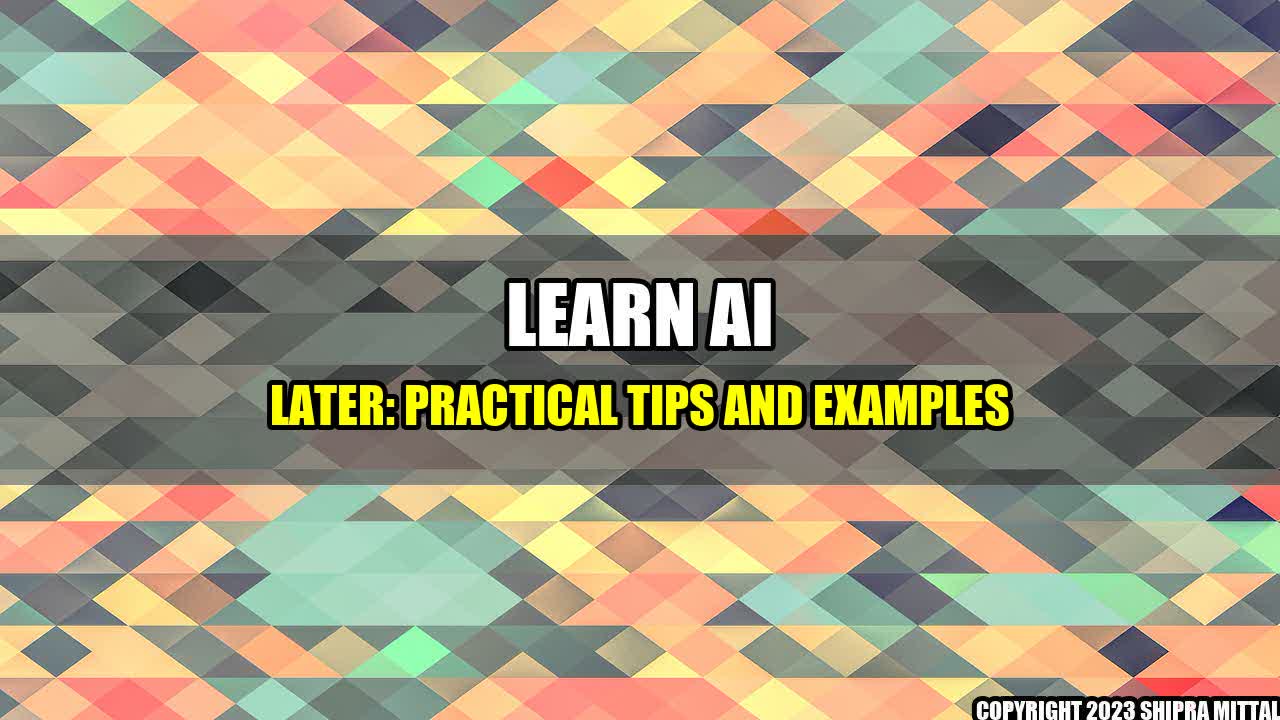The Story of John and the Chatbot
John was a busy entrepreneur who wanted to improve his customer support for his online business. He heard about chatbots and how they could automate some of the repetitive tasks. However, John did not know how to create a chatbot or how to integrate it into his website. He thought he needed to have an AI degree to even start.
One day, John met a chatbot expert who told him that he did not need to become an AI expert to use chatbots. The expert explained that there are many tools and platforms that allow non-technical people to create chatbots with minimal coding skills. John was fascinated and started to learn more about AI and its practical applications.
AI in Business
There are many examples of how AI is transforming various industries. Here are a few quantifiable examples:
- AI-powered chatbots can reduce customer service costs by up to 30% and increase customer satisfaction by up to 24%.
- AI algorithms can predict equipment failure and maintenance needs, which can reduce downtime and maintenance costs by up to 30%.
- AI-powered fraud detection can save financial institutions up to $16 billion a year.
- AI algorithms can optimize energy consumption and reduce energy costs by up to 20%.
Practical Tips for Learning AI
If you are like John and want to learn AI without becoming an AI expert, here are some practical tips:
- Start with online courses and tutorials that provide hands-on exercises and real-world examples. Some popular platforms are Coursera, Udemy, and edX.
- Explore AI tools and platforms that do not require high-level coding skills. Some popular ones are Google Cloud AI Platform, Microsoft Azure AI, and Amazon SageMaker.
- Join AI communities and forums where you can connect with other learners, ask questions, and share ideas. Some popular ones are Kaggle, TensorFlow User Group, and Reddit Machine Learning.
and Case Studies
Here are some personal anecdotes and case studies that illustrate the power and potential of AI:
- Sophia the Robot, an AI-powered humanoid robot, became the first non-human to receive a citizenship in Saudi Arabia in 2017. Sophia can interact with humans, mimic human expressions, and even tell jokes.
- A startup called Freenome uses AI algorithms to detect early-stage cancer from blood samples. The system has shown high accuracy rates and can potentially save thousands of lives.
- Google DeepMind's AI algorithm AlphaGo defeated the world champion in the ancient Chinese board game Go in 2016. This achievement demonstrated the incredible power of deep learning and neural networks.
Conclusion
To sum up, learning AI is not as daunting as it may seem. You can start with online courses and practical tools, join AI communities, and explore personal anecdotes and case studies. Here are three key takeaways:
- You do not need to become an AI expert to use AI tools and platforms.
- AI has many quantifiable benefits in various industries, from customer service to healthcare to finance.
- AI has the potential to revolutionize many aspects of our lives, from transportation to education to entertainment.

Akash Mittal Tech Article
Share on Twitter Share on LinkedIn